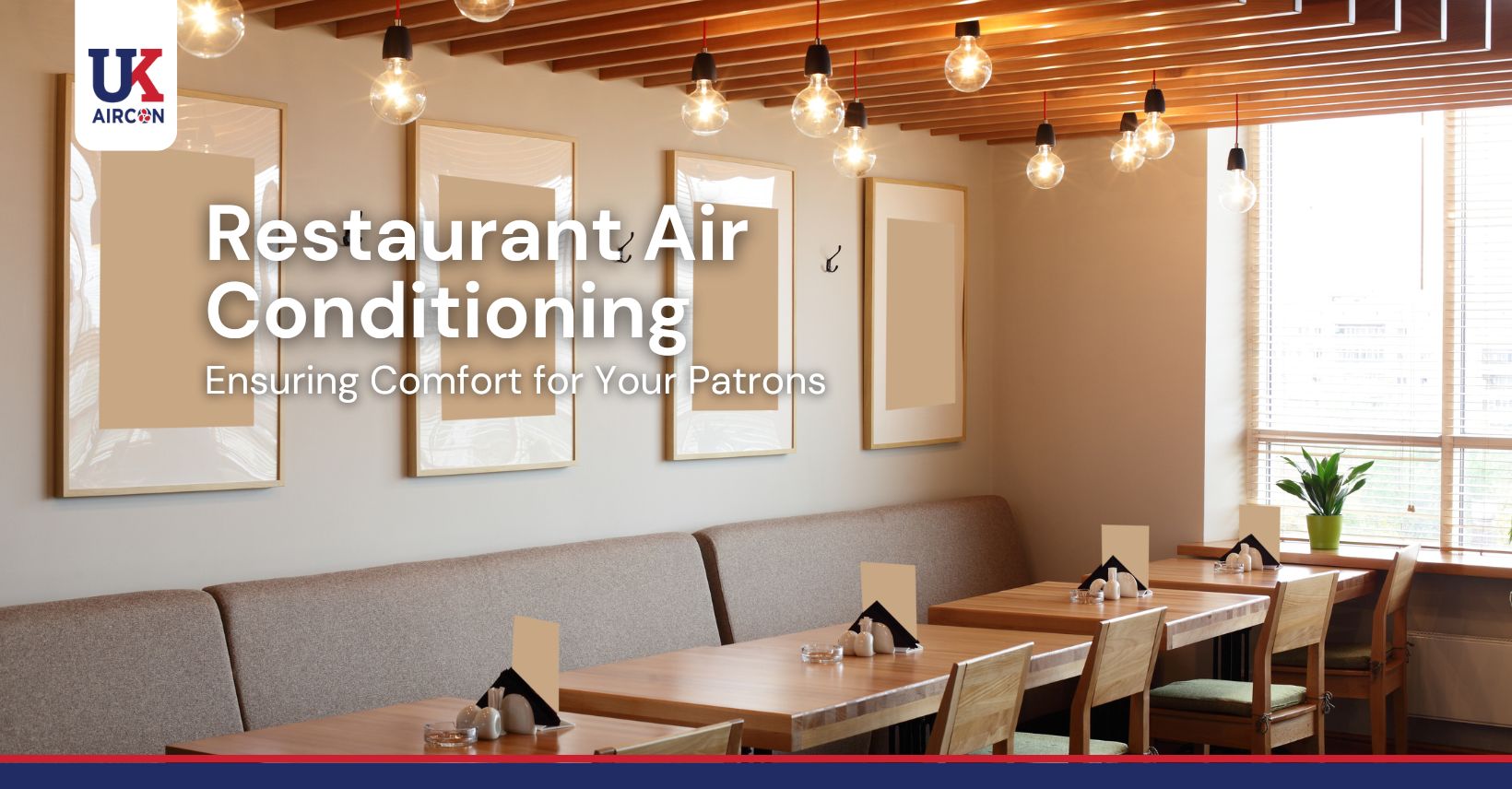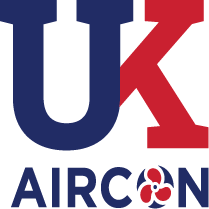Keeping your restaurant air conditioning system in top condition is essential for ensuring the comfort and satisfaction of your patrons.
We explore the importance of restaurant air conditioning, factors to consider when choosing a system, common issues that may arise, and how restaurant owners can ensure proper maintenance.
Understanding the important role of air conditioning in your establishment helps create a pleasant dining experience for customers, maintain food quality, and adhere to health code regulations.
What Is Restaurant Air Conditioning?

Restaurant air conditioning refers to the specialised HVAC systems designed to control the environmental temperature within a restaurant setting.
These HVAC systems have special requirements due to the distinct demands of the restaurant environment. Precise environmental temperature control is essential in restaurants to ensure a comfortable dining experience for customers. The complexity of restaurant air conditioning systems lies in their ability to maintain optimal temperatures and manage humidity levels to prevent mould and mildew growth. Various components, such as evaporator coils, compressors, and ductwork, create a comfortable indoor climate for patrons and staff.
Why Is Proper Air Conditioning Important for Restaurants?
Proper restaurant air conditioning is essential for several reasons, including ensuring patrons’ comfort, maintaining high air quality, and preventing kitchen odours from affecting the dining room. This eventually contributes to a pleasant dining experience.
Ensures Comfort for Patrons
Comfort for patrons is a top priority in any restaurant, and a well-designed HVAC system plays a critical role in achieving this goal.
When patrons walk into a dining establishment, they expect a comfortable environment that enhances their dining experience. The temperature in the dining room can greatly impact the overall ambience and influence how patrons feel during their meal.
Maintaining an optimal temperature keeps patrons satisfied and encourages them to stay longer, leading to increased revenue for the restaurant.
Proper ventilation, air quality, and temperature control are paramount regarding HVAC system design considerations. An efficient system ensures a pleasant atmosphere and contributes to energy savings and operational cost-efficiency. Restaurant owners must work closely with HVAC professionals to create a design that meets their needs, considering factors like seating capacity, kitchen layout, and zoning requirements.
Maintains Food Quality
Maintaining food quality is directly linked to temperature control within the kitchen and dining areas.
Proper temperature control ensures that ingredients are stored and cooked at the right temperatures to prevent spoilage and bacterial growth. A well-functioning kitchen ventilation system also aids in maintaining a consistent cooking environment by removing excess heat, smoke, and cooking odours. This not only enhances the comfort of kitchen staff but also prevents the cross-contamination of flavours between different dishes. When these systems work harmoniously, chefs can exercise better control over the cooking process, producing more consistent, high-quality dishes.
Prevents Health Code Violations

Preventing health code violations is an important aspect of restaurant management, and proper ventilation design plays a substantial role.
Effective ventilation systems are essential for maintaining optimal air quality in a commercial kitchen environment. These systems work to remove cooking fumes, smoke, and excess heat, ensuring a comfortable and safe space for kitchen staff and customers alike. By properly circulating and filtering the air, ventilation systems help prevent the accumulation of grease and odours that can lead to unsanitary conditions and potential health risks.
Efficient ventilation enhances air quality and minimizes the spread of airborne contaminants, fostering a healthier workplace. This improvement is essential for health and safety and adhering to health codes and regulations. Understanding these benefits helps underline the importance of considering typical factors when selecting restaurant air conditioning systems, ensuring they meet both comfort and regulatory needs. This leads us to examine the critical factors when choosing restaurant air conditioning.
What Factors Should Be Considered When Choosing Restaurant Air Conditioning?
When choosing a restaurant air conditioning, several factors need to be considered, including:
- the size and layout of the restaurant,
- type of cuisine,
- cooking methods,
- budget, and
- the energy efficiency of the HVAC system.
Size and Layout of the Restaurant
The size and layout of a restaurant play an important role in determining the HVAC system design, which incorporates zoned cooling to ensure optimal comfort.
A spacious dining area with high ceilings may require different HVAC considerations than a cosy restaurant with compact seating arrangements. Proper ventilation becomes essential in open-plan layouts to circulate air effectively, while zoned cooling can be utilised to cater to varying temperature preferences in different sections of the restaurant. When customising the HVAC system for your restaurant’s special space, it’s important to consider factors like kitchen heat output, outdoor air quality, and customer traffic flow.
Type of Cuisine and Cooking Methods
The type of cuisine and cooking methods used in your restaurant significantly impact kitchen ventilation and makeup air system requirements.
For instance, if your restaurant specialises in frying foods, such as deep-frying or stir-frying, you will need a strong ventilation system to effectively remove grease-laden vapours from the air. On the other hand, techniques like grilling or broiling generate a significant amount of smoke, necessitating proper extract hoods to prevent it from spreading throughout the establishment. Choosing the correct kitchen ventilation system can enhance air quality, reduce fire hazards, and create a more comfortable environment for the kitchen staff and diners.
Budget and Energy Efficiency

Budget and energy efficiency are important considerations when selecting an HVAC system for your restaurant, as these factors directly impact your utility bills and overall operating costs.
Opting for efficient HVAC systems, like the ones offered by Maximum Climate Control, can significantly reduce your energy consumption without compromising comfort. These systems integrate innovative technologies, such as programmable thermostats and zoning capabilities, allowing you to customise temperature settings and optimise energy usage based on occupancy levels. Investing in high-quality HVAC equipment will enhance the indoor environment for your patrons and staff and pave the way for long-term savings through lower energy expenses.
What Are Some Common Issues with Restaurant Air Conditioning?
Common issues with restaurant air conditioning systems include inconsistent temperatures, poor air quality, and high energy costs, which can negatively impact the dining experience and operational efficiency.
Inconsistent Temperatures
Inconsistent temperatures within different restaurant areas can lead to discomfort for patrons and staff.
The uneven temperature distribution is often caused by factors such as varying sunlight exposure, insulation issues, or the positioning of HVAC vents.
When certain zones receive more sunlight or have poor insulation, they tend to be warmer than others, creating a noticeable difference in comfort levels.
By implementing zoned cooling solutions, the HVAC system can more effectively regulate temperatures by independently controlling airflow and cooling in different restaurant sections.
Poor Air Quality
Poor air quality in a restaurant can result from inadequate ventilation design and ineffective air filtration systems.
Proper ventilation design is important as it effectively removes airborne pollutants, moisture, and odours from the kitchen area, ensuring a healthier environment for staff and customers.
By introducing regular air filter maintenance schedules, grease buildup and other contaminants can be effectively trapped and removed, preventing them from circulating back into the restaurant. This improves air quality and reduces the risk of fire hazards associated with grease accumulation in kitchen exhaust systems.
High Energy Costs

High energy costs are common for restaurants that do not prioritize energy efficiency in their HVAC systems.
By partnering with an experienced HVAC company, restaurants can benefit from expert guidance on designing and implementing energy-efficient systems to their needs. These specialists can conduct thorough energy audits, recommend efficient equipment, and optimise system configurations to ensure maximum performance while minimising energy consumption.
Implementing energy efficiency measures, such as proper insulation, smart thermostats, and routine maintenance, reduces restaurant utility bills and delivers environmental advantages. Engaging with professionals ensures compliance with energy regulations and upholds industry standards, which is essential for operational excellence. This proactive approach leads us to explore how restaurant owners can ensure proper maintenance of their air conditioning systems, a critical aspect of sustaining these benefits.
How Can Restaurant Owners Ensure Proper Maintenance of their Air Conditioning System?
Proper maintenance of your restaurant air conditioning system is essential for its longevity and efficiency, and it involves regular preventative maintenance practices.
Regularly Change Air Filters
Regularly changing air filters is important for maintaining good air quality and ensuring the efficiency of the HVAC system.
Dirty air filters can lead to problems such as poor indoor air quality, increased energy consumption, and even potential damage to the HVAC system.
When air filters become clogged with dust, pollen, and other airborne particles, they restrict airflow, causing the system to work harder to maintain the desired temperature. This strain unnecessarily decreases energy efficiency and stresses the components, leading to more frequent breakdowns and repairs.
Schedule Professional Maintenance Checks
Scheduling professional maintenance checks with a reputable HVAC company is essential for identifying and addressing potential issues before they become major problems.
Regular maintenance prevents costly repairs and ensures that your HVAC system operates at its peak performance, leading to lower energy bills and improved indoor air quality. A skilled technician can clean the system components, check for leaks, and adjust settings to optimise efficiency. These checks extend the lifespan of your system, protecting your investment in a comfortable home environment. By staying proactive with maintenance, you can enjoy uninterrupted comfort and peace of mind throughout the year.
Monitor Energy Usage
Monitoring energy usage is key to managing utility bills and ensuring the HVAC system operates efficiently.
By tracking energy consumption, you can gain valuable insights into how your HVAC system is performing daily. This data helps identify areas where energy is wasted or the system is not running optimally. Understanding these inefficiencies allows for targeted improvements to increase overall energy efficiency, reduce utility costs, and minimise environmental impact.
Regular monitoring allows you to establish benchmarks and goals for energy consumption, facilitating ongoing adjustments and improvements. This proactive strategy ensures that potential issues are addressed promptly, enhancing system performance and extending the lifespan of your HVAC equipment. Such vigilant management is important for maintaining optimal server room conditions, which we will further explore in conclusion, focusing on securing server room integrity with advanced cooling solutions.
Conclusion: Securing Server Room Integrity with Advanced Cooling Solutions
A well-maintained and properly designed HVAC system ensures patrons’ comfort and the overall dining experience in any restaurant.
A well-functioning HVAC system is key to regulating indoor air quality, controlling humidity levels, and ensuring proper ventilation. This contributes to a pleasant dining atmosphere for customers, helps preserve the freshness of food, and maintains cleanliness in the kitchen and dining areas.
The ability of an HVAC system to maintain comfortable temperature levels throughout the restaurant, regardless of the weather outside, is critical for creating an inviting ambience for guests. Without efficient HVAC systems, restaurants may encounter uneven temperatures, odours, and airborne particles that can negatively impact customer satisfaction and overall dining experience. Click here for more information.

